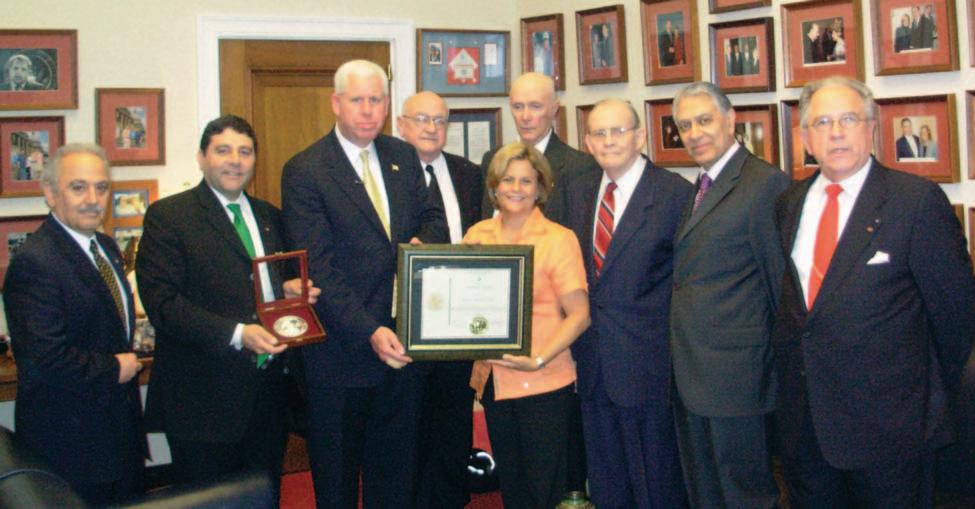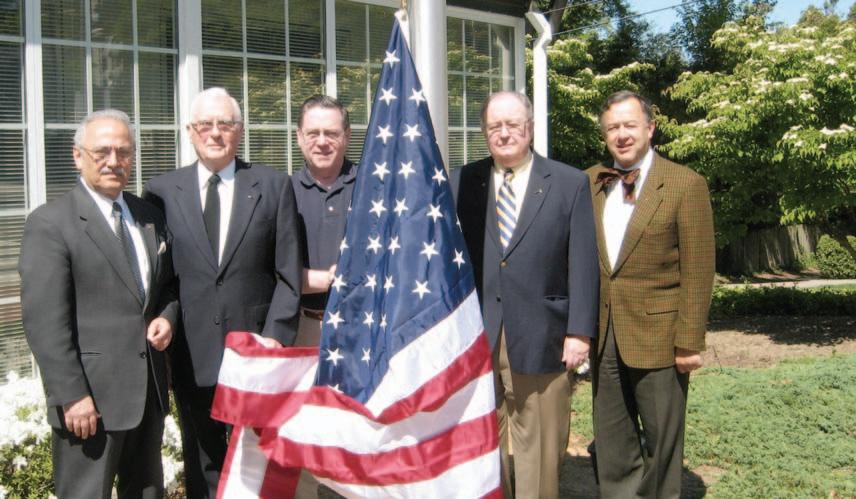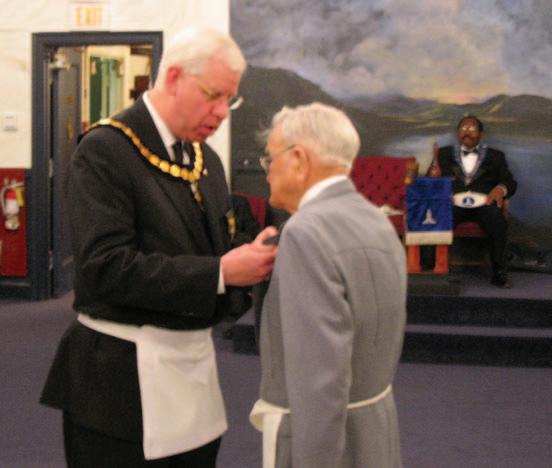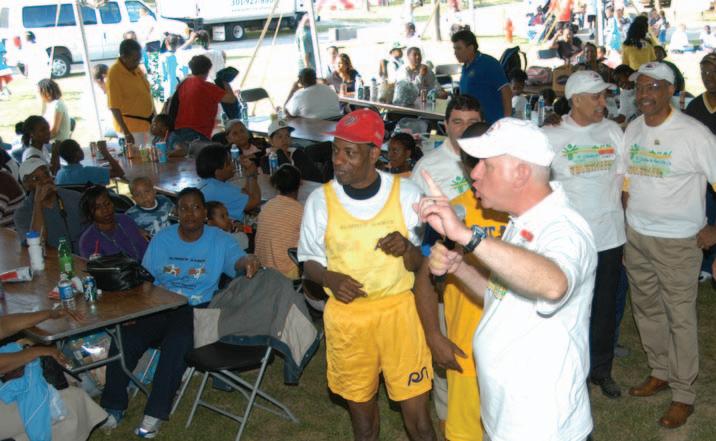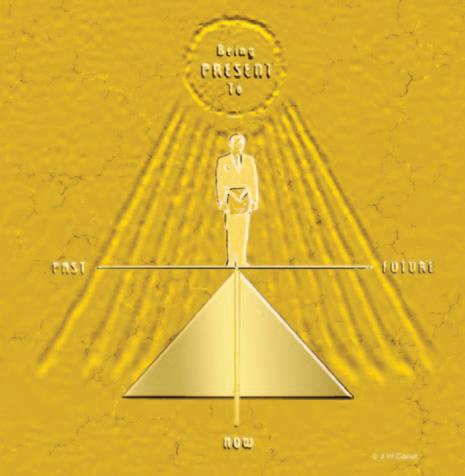
6 minute read
Situational Opportunities and Public Awareness
In reflection upon the goals of the Masonic Information Center’s recently launched awareness effort, detailed elsewhere in this issue of the “Voice,” it seems incontrovertible that the image of the Craft, from the standpoint of members and non-members alike, reflects what Masons do, and conversely, on occasion, by what they fail to do. Hence it is important that the Craft, as it seeks to curry public favor, consciously strive to “accentuate the positive” while putting its plans and programs into action.
To accentuate the positive it may be necessary for the Masons of today to examine long held notions and conceptions, particularly those which have become, through time and fancy, irrevocable, hide-bound, and untouchable “traditions,” all too often immune to modification or adaptation. Nevertheless change is inevitable — in what we do and how we do it. Our institution, although private, has public obligations, which if properly and reasonably confronted, can be beneficial to our interests.
For too long the good of Masonry has been concealed by policies prevailing in the Craft because of subjective interpretations of what Masonry demands of Masons. Such was the case in 1893, when the Grand Lodge of D.C. was invited and declined the opportunity to participate in a celebration marking the centennial celebration of the laying of the cornerstone of the U.S. Capitol. An explanation of this action may be instructive.
It seems that on July 26, 1893, Grand Master L.C. Williamson convened the Grand Lodge to present the invitation he had received from the chairman of the committee appointed to plan the centennial affair. In the invitation the Grand Lodge and the subordinate lodges of the Grand Lodge were invited to participate in the celebration.
The invitation stated that “It is the desire of the committee to extend to the Masonic fraternity such prominence as was accorded them at the laying of the cornerstone; to be given the right of line in the parade, and space at the Capitol for the Grand Lodge to perform such ceremonies as may be appropriate.” Dean Clatterbuck
In the discussion that evolved a number of resolutions were offered to facilitate participation in the event and all of them were referred to a committee to be appointed by the Grand Master, with instructions to report its findings, on the call of the Grand Master, as to the advisability of accepting the invitation.
The committee was appointed and it unanimously supported acceptance of the invitation at a special communication called by the Grand Master on August 11, with only one reservation — that the celebration receive the sanction of Congress. Signing the report were four Past Grand Masters and two other members of the Grand Lodge.
Past Grand Master Isaac L. Johnson, however, on hearing the report of the committee, immediately offered a substitute resolution in which he stated that it was an established custom that this Grand Lodge should not be assembled except for the purpose of doing Masonic work; nor take part in any public ceremonies except those of a purely Masonic character; and that before accepting an invitation to participate in any public ceremony, full control and direction of the Masonic work must be tendered to it by “competent and legal authority.”
Brother Johnson then offered a resolution to decline the invitation unless the Grand Lodge was invited to participate “by Congressional authority” and under the conditions he had mentioned in his objection. Discussion on his substitute resolution was heated, we may assume, but it won the approval of the members of Grand Lodge on a vote of 59 yeas and 38 nays.
The ceremony took place as scheduled, nevertheless, on September 18, 1893, in the presence of President Grover Cleveland, Vice President Adlai Stevenson, Charles Frederick Crisp, Speaker of the House of Representatives, and a host of Congressmen, Senators, Justices, Departmental Heads, and “a vast concourse of grateful people of the District of Columbia.”
Grand Master Williamson commented on the celebration at the annual communication of 1893, where he made reference to it in his report to the Grand Lodge. At that time he observed that the centennial celebration of the laying of the cornerstone of the United States Capitol had been completed as scheduled and that our distinguished brother, Adlai Stevenson, had on that occasion recalled the historical facts concerning the Masonic part taken by George Washington in the original ceremony.
It is to be regretted that the brethren of that time did not propose a cornerstone re-inactment for the centennial celebration. Surely it would have been accepted by the
Celebrating the Special Olympics
Mission accomplished, all Masons, their families and friends, gathered together for a solemn, but abbreviated, ceremony celebrating the Masonic Day of Thanksgiving. WB Walter Simon, Deputy Grand Chaplain, led with the opening prayer, followed by MW Albert McNair Smith, Grand Master of Masons of the District of Columbia , and Robert E. Wheeler, Grand Master of the Most Worshipful Prince Hall Grand Lodge of the District of Columbia, reading verses of scripture in praise of the Almighty. The ceremony ended with an impressive Thanksgiving ode presented by WB Robert K. Blaine. The opening ceremonies for the 2006 Games were indeed impressive, well designed and choreographed to encourage and inspire all the participants, attendants and supporters and sponsors. There were 16 official sponsors, with their names and insignias printed at the back of the volunteers T- shirt, but none were more visible than the Masons. All those gathered at the gymnasium witnessed a magnificent display of the Colors by the United States Navy Color Guard, and were treated to a masterful rendition of our national anthem. This was followed by the parade of the participating athletes from D.C. schools, foster homes, educational institutions and heath centers. Athletes ranging from 8 to 63 in age, competing in 6 sports, tennis, track and fields, swimming, soccer, volleyball and Bocce, marched into the gymnasium, with much pride and joy as they were introduced, waving and cheering in response to the organizers of the event, who in extending the invitation, left the specific role that the Freemasonry was to play up to the Masons themselves. As a previous issue of the “Voice” sagely noted, Freemasons should be ever ready to open the door when opportunity knocks, It knocked in 1893, and the brethren blinked!
Is Masonic Awareness necessary? Here in the District of
continued from page 4
Columbia? Of course it is!
The Olympians Oath
“Let me win, but if I can not win, let me be brave in the attempt!”
thunderous applause and the standing ovations of their supporters.
Then the dancing team of the Washington Wizards took to the floor to provide more excitement in the jampacked arena. Organizers and sponsors were introduced and recognized for their contributions. Representatives of the parent organization of the Special Olympics, the Catholic University of America, the Mayor, and Miss District of Columbia, Shannon Schambeau, and our Grand Master (his remarks follow the centerfold) all spoke briefly.
Mark Bovino, Managing Director of the Special Olympics Summer Games for the sixth year, in a telephone conversation with this writer, expressed his organization’s deep appreciation for the role Masons played in this year’s Olympics. He pointed out that the barbeque, sponsored and served by Masons, was a critical and essential part of the games, for it brought together the athletes, their families, and supporters, under the tent, thereby providing a most effective start for this tremendous event.

